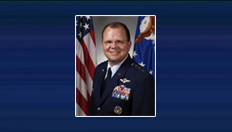Hubbard Radio Washington DC, LLC. All rights reserved. This website is not intended for users located within the European Economic Area.
Federal Insights
-
Afghanistan has begun disbanding private security companies and confiscating their weapons. President Hamid Karzai said in August all private security companies had to close down within four months. It\'s part of part of a plan for the government to take over all security responsibilities beginning in 2014. Karzai says the firms are responsible for horrific accident and a series of killings, crimes and scandals.
October 06, 2010 -
What led to Wikileaks founder Julian Assange\'s decision to release 75 thousand classified documents obtained from a U.S. Army private? A former group spokesman, who quit the organization said it was becoming consumed by its confrontation with the Pentagon. Daniel Domscheit-Berg, a German who said he left because of Assange\'s management style. He told Der Speigel he had serious problems with Assange\'s \"obsession\" with attacking the U.S. government.
October 06, 2010 -
There is word that wiki-leaks is coming apart at the seams. The Associated Press says WikiLeaks is unraveling from internal turmoil and power struggles. Key staffers at the website have reportedly deserted the organization out of anger that founder Julian Assange unilaterally decided to publish tens of thousands of classified documents before enough work was done to protect the names of informants. Assange, a 39-year-old Australian, founded WikiLeaks in 2006 for people wishing to anonymously publish material that companies and governments want kept secret.
October 06, 2010 -
The U.S. Postal Service is now the only mailing and shipping company worldwide that provides packaging supplies that are \"Cradle to Cradle Certified.\" This means that all 175 materials used by its 58 suppliers to make stamps and stamped products have been assessed, and meet requirements for, their impact on human and environmental health, recyclability and compostability. The Postal Service says in 2009 it provided one billion eco-friendly mailing and shipping supplies to customers. Technology used to create biodegradable or recyclable materials have allowed the agency\'s sustainability initiatives to cut greenhouse gas production and to save money and resources. Specific achievements include a 10.8 trillion dollar reduction in British Thermal Units in energy use at their facilities since 2005, and $400 million dollars worth of savings in energy costs since 2007.
October 06, 2010 -
Scientists have long imagined what could be done if they could engineer a cilia-like biosensor. Now, scientists at the University of Southern Mississippi have for the first time, imitated Mother Nature by developing a skinny-molecule-based material that resembles the tiny, hair-like structures organisms use to smell, hear, and see. They\'ve developed a new thin copolymer film with whisker-like formations that mimic the natural material. It responds to thermal, chemical, and electromagnetic stimulation, and allows researchers to control it which, they say, opens unlimited possibilities, including testing for the presence of toxins, oxygen or the lack of oxygen in an environment. Future uses could include testing glucose levels, drug testing, or for air or water safety.
October 06, 2010 -
Move over radar... it won\'t be long before that decades-old technology is replaced by satellites to track all aircraft in U.S. airspace. The Federal Aviation Administration has given the green light for a full-scale, nationwide deployment of a new satellite-based surveillance system called Automatic Dependent Surveillance - Broadcast, or ADS-B. The technology has been successfully rolled out at four key testing sites. The FAA says the system tracks aircraft with greater accuracy, integrity and reliability than radar-based systems. Controller screens update more frequently and show more detailed information, including the type of aircraft, its call sign, heading, altitude and speed. Every part of the country now covered by radar will eventually have ADS-B coverage. Nationwide coverage is expected to be complete by 2013.
October 05, 2010 -
Tight security measures both tighten the leashes of executives, while driving them out of the office.
October 04, 2010 -
Gracia Hillman Commissioner, U.S. Election Assistance Commission Dwight Bowman AFGE 14th District National Vice President Bill Fletcher AFGE Field Services and Education Department Director Mark Roth Former AFGE General Counsel
September 30, 2010 -
\"Blindsided\" is the word that Va. Senator Jim Webb used when he addressed Deputy Secretary of Defense William J. Lynn. Lynn was one of three Pentagon officials who appeared before the Senate Armed Services Committee to discuss spending cuts at the Pentagon. The focal point for Webb and other members of the Virginia Congressional delegation is the Joint Forces Command, in Norfolk and Suffolk. It\'s an area with a huge military presence, including the world\'s largest naval base. It\'s slated to be closed.
September 29, 2010 -
October 4th and October 6th Mr. Spires is responsible for the department\'s $6.4 billion investment in Information Technology (IT).
September 29, 2010 -
September 27th and September 29th As a functional manager of the U.S. Air Force Medical Service, he exercises direction, guidance and technical management of more than 42,800 people assigned to 75 medical facilities worldwide.
September 29, 2010 -
The U.S. is watching North Korea very carefully today. North Korean dictator Kim Jong il, just promoted his 27 year old son, Kim Jong-un, to four star general. Why? Kim Jong-il, 68, is widely believed to have suffered a stroke in the summer of 2008. Since then he\'s tried to make his third son the successor in what could be the communist world\'s first back-to-back father-to-son power transfer. Kim took over the regime when his father and North Korean founder Kim Il-sung died in 1994.
September 28, 2010 -
The Army may soon begin distributing Apple\'s iphone to new recruits. The goal appears to be giving young people effective training tools and tools that are fun. Defense Tech reports Lt. Gen. Mark Hertling, the top officer in charge of Army basic training says the service is making a radical shift away from Power Points and into iPhone apps. Several hundred iphones have been isued as a part of a preliminary study to see if smart phone delivery of training material works better with this generation of recruits.
September 27, 2010 -
The U.S. Patent and Trademark Office is looking for ideas on how to incentivize the creation, and wider distribution of, technologies that address humanitarian needs. One proposed pilot program would allow patent holders to put any patent on a faster track to approval if they also share technology that address humanitarian purposes. The technologies include treatments for tropical diseases, diagnostic medical tools, methods to grow crops with higher yields or better nutritional value, and treatments for sanitation or clean water. Participants can qualify for the proposed pilot in two ways. One is by making their patented technologies available to impoverished populations for humanitarian use. Because patents under re-examination are often commercially valuable, the fast-track re-examination allows a patent owner to affirm the validity of their patent more quickly and less expensively. More information about the proposed fast-track re-examination voucher pilot program can be found in the Federal Register.
September 27, 2010






